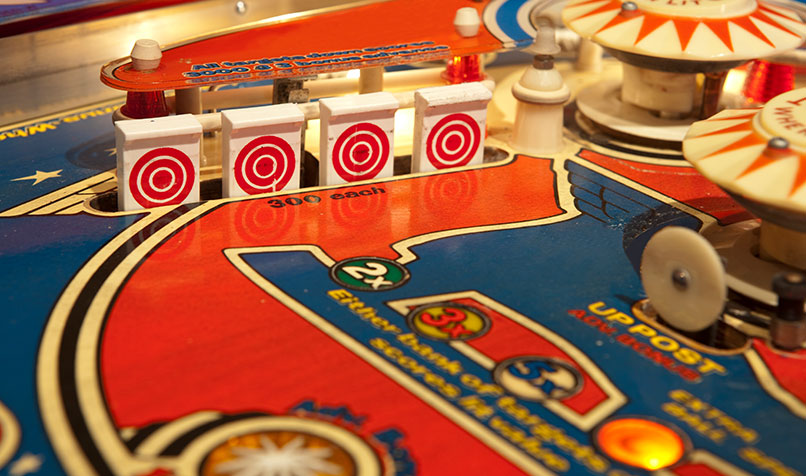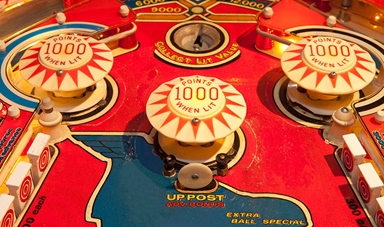Loading component...
At a glance
- Multiple studies published over the past decade prove that although we multitask frequently, it often happens at the cost of deep focus.
- The rapid task switching that actually happens can prevent our brains from entering the mode required for creativity and insight.
- Research suggests that when multitasking, people nearly always take longer to complete tasks, and are more likely to make mistakes.
Look around many offices, and it’s likely you will see employees staring at a computer screen while listening to music through earphones and occasionally glancing at a smartphone. That’s a three-way attention divide before you even start bringing in other distractions such as a colleague wandering over for a chat, or an email notification.
Multitasking – something that we do almost without thinking both at work and in leisure time – was once seen as a positive skill, cultivated by the most go-getting and efficient worker. However, that’s proved a largely fallacious view, discredited by multiple studies published over the past decade.
Pinball wizards: rapid task switching
One thing all the scientists agree on is that our brains aren’t designed to handle more than one task at a time.
“The word multitasking doesn’t really capture what is going on in our brains,” says Megumi Miki, leadership consultant.
“What we’re actually doing is rapid task switching. It’s like a pinball, when we jump between tasks, we don’t allow the brain to go into the deep thinking mode required for creativity and insight. That’s why most of us have creative thoughts when our minds are relaxed – just as we wake up, while on a walk or jog, or with a glass of wine,” Miki says.
Neuroscientists explain that each time the brain switches activity, it then has to log in to the set of rules required to complete that task. While that might be fine if you’re attempting easy tasks such as photocopying and talking, or tidying your desk and listening to a podcast, research shows that when we attempt multiple, complex tasks, not only do we lose focus, we are also less able to make good decisions.
Underperforming in a multimedia-driven world
Academic and Nobel prize-winning behavioural economist Daniel Kahneman named the different types of thinking as System one – the fast, automatic thinking based on existing knowledge, and System two, the slower, effortful, deep thinking that requires some quiet space for the mind and is difficult to access when we are in a busy autopilot mode.
It is this quieter mode of thinking that is increasingly difficult to master in our multimedia-driven world, where we are constantly inundated with electronic information demanding our attention.
Heavy users of multiple media (such as checking emails while scrolling through Instagram and watching TV) are particularly struggling to focus.
Professor Anthony Wagner, director of the Stanford Memory Laboratory, reviewed a decade of data on media multitasking, finding that “in about half of the studies, heavy media multitaskers are significantly underperforming on tasks of working memory and sustained attention”.
"The technology that was meant to liberate us has made life more hectic and challenging."
Other studies from Stanford published in 2019 show that not only do people nearly always take longer to complete projects when multitasking, they are also far more likely to make mistakes. The researchers used neuroimaging to show the additional processing demands required by the brain to juggle competing tasks.
They also linked their findings to developmental studies that imply as we get older, multitasking takes a mental toll, reducing our ability to selectively choose where to focus and give sustained attention to get things done.
Our understanding of the long-term effect on people who are heavy media multitaskers is only just emerging, but a 2018 US study Minds and brains of media multitaskers: current findings and future directions, by Melina R. Uncapher and Anthony D. Wagner, adds to growing evidence that a habit of switching between media is impairing some people’s ability to concentrate on a single task, making them more prone to distractions and less able to memorise facts.
Open-plan work spaces: is the office the problem?

It’s not just the technology that might be making us fuzzy-headed. Open-plan workspaces are largely the result of cost savings, but are marketed as a way of encouraging a free flow of ideas and spontaneous collaboration.
The PwC and KPMG offices at the new Barangaroo towers in Sydney, for example, are spaces where no one has a permanent desk and each day must find a new place to be productive – even if that’s away from colleagues, or on a sofa, or in one of the many coffee lounges.
Not everyone is convinced that they encourage a culture of deep thinking.
“Some studies show that people speak to each other less and email more in open-plan offices, says Miki.
“They’re good for some people who almost need the noise and bustle in order to operate,” says Dr Judith MacCormick, CEO of strategic advisory BoardFocus Advisory.
“Yet for others, it’s like working in a permanent corridor. The end result is that we are less focused and, ironically, less able to interact. The need to create our own quiet space means you have many people using headphones to block out the hubbub.”
Leadership and task priority
One of the perks of senior management is usually the sanctuary of an office, but as any leader will tell you, this is no guarantee of freedom from distraction.
Vanella Jackson has been global CEO of brand consultancy Hall and Partners for 11 years and has developed strategies during that time to ensure she isn’t overwhelmed with tasks.
“All CEOs need strategies to juggle tasks. It’s not just about juggling the things you have to get done, but also about having enough time to respond to things that come up when you least expect it. It is important to have a diary that is flexible enough to drop everything to focus on one task.”
The biggest challenge, Jackson says, is creating the time to think about the important things, the issues that will impact the business in the long and medium term.
“It is too easy to respond to the things that are immediately in front of you, particularly when you are in the office. Everyone wants a bit of your time to get input on the challenges they are facing.
“To do this, I create my own thinking and reflection time when I swim, which I do most mornings. This enables me to balance the demands of the job. It also helps boost my energy levels.”
Staying present
How can leaders instil similar strategies in the wider workforce to prevent them pinballing from one task to the next? Jackson thinks the key is for managers to show empathy and vulnerability in their own struggles to juggle multiple tasks.
“Certainly during my career, my work life has become more demanding and faster. The technology that was meant to liberate us has made life more hectic and challenging. This is particularly true in a service business like ours.
"Increasingly, I believe it is the responsibility of leaders to find ways to support people, working safely and productively in this fast-moving environment. It is about providing practical strategies to help us all focus.”
Ironically, the evidence is that we are a lot happier when we are completely absorbed in a task. Think about the pleasure of falling into a good book, working on a hobby, or gaming and how quickly time passes.
Psychologists call these experiences “flow states” – a term coined by the world-famous psychologist who discovered them, Mihaly Csikszentmihalyi. While these are activities we have chosen to do rather than allocated to us, it reinforces just how productive we can be when our minds are concentrated on one thing.
CPA Library resource:
Top tips for staying focused
As part of the research for her book Quietly Powerful, Megumi Miki interviewed 29 leaders, and offers some practical advice on how to achieve optimum focus and productivity in a noisy, always-on workspace.
1. Allocate specific times for important tasks
For example, give yourself an hour for preparing a presentation and remove distractions as much as possible during this time – such as putting the phone away and turning off email notifications.
2. Find the right environment for concentrated work
If you know that you get distracted in open plan offices, book quiet meeting rooms, go to a cafe or work at home.
3. If you are prone to distraction, create a small reward
Treat yourself to a coffee or 15 minutes of social media when you have managed to stick to the time planned to focus on a task.
4. Prioritise your time
If other people fill up your diary with too many meetings, then book meetings with yourself in the calendar, and use these times to focus on work that requires deep thinking.
5. Practise being present with people
Ensure you are giving the person in front of you your full attention, listening to (and hearing) what they are saying, and making eye contact.
6. Take a break from the office
Take a walk, feel the sun, rest and recharge. Engage in physical activities that have a single focus to rest your mind. Consider mindfulness or meditation to train your mind to focus.

